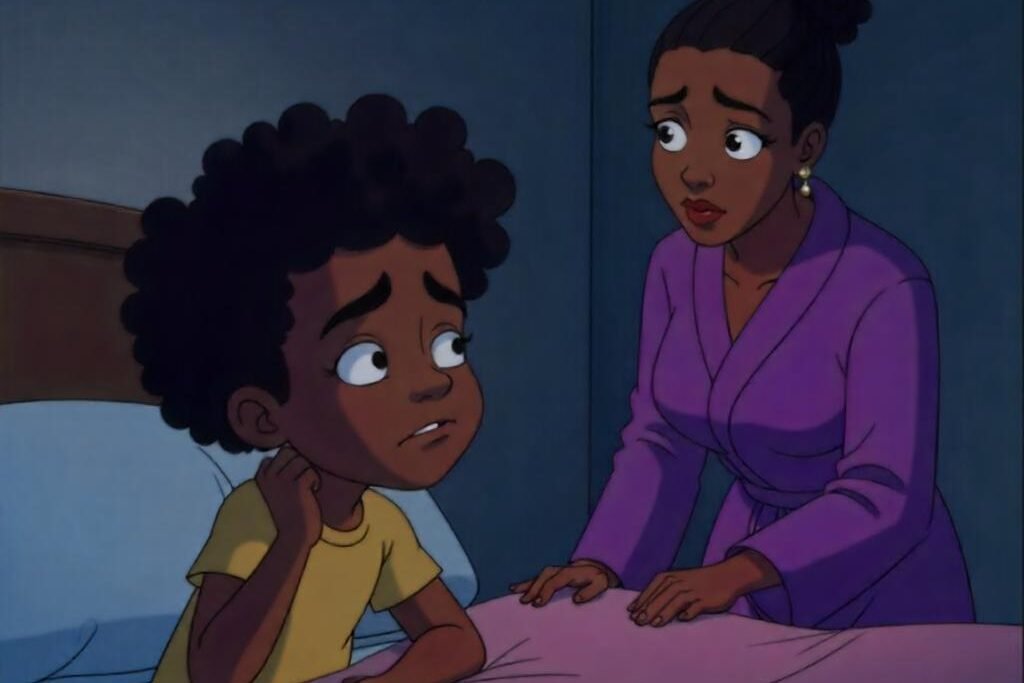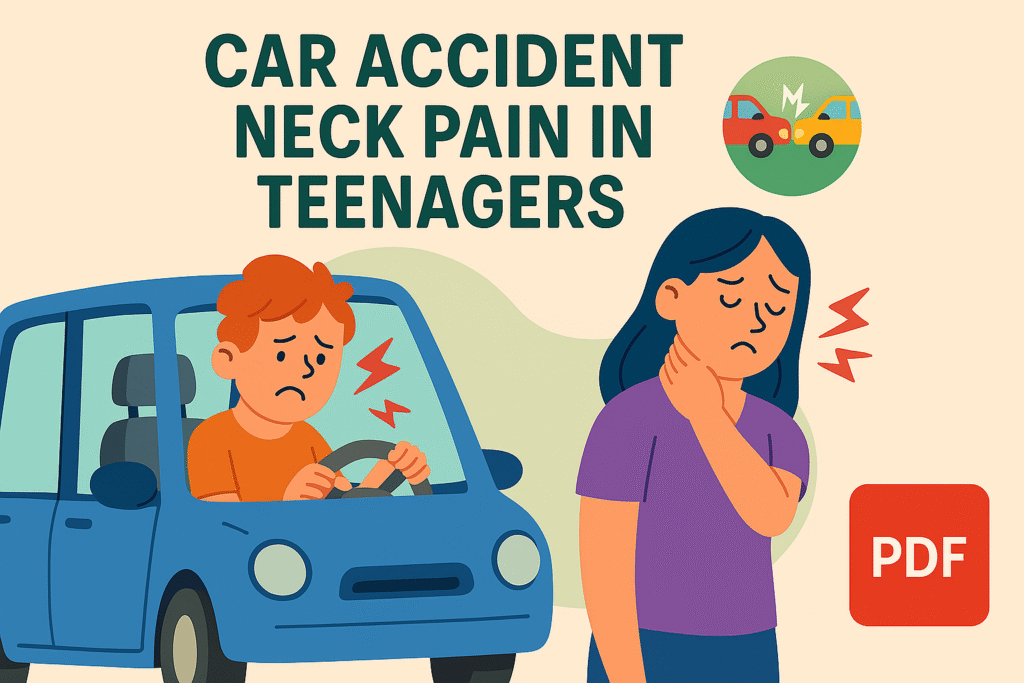“Mom, my neck really hurts.”
These were the first words Sarah’s 17 year old son, Amaan, said after coming home from a minor car accident. The crash wasn’t severe just a fender bender on the way back from school. But over the next few days, his discomfort grew. He struggled to focus in class, couldn’t sleep comfortably, and avoided moving his head altogether.
Amaan’s story isn’t unique. Neck pain after car accidents is one of the most overlooked injuries among teenagers. While the damage may seem minor, untreated neck strain especially in young, growing bodies can lead to long term complications.
In this blog, we’ll explore Car Accident Neck Pain In Teenagers: Real Stories, Real Solutions, the early warning signs to look out for, and realistic, effective solutions to help teens recover quickly and safely.
🚗 Why Are Teens at Greater Risk?
Teenagers are still developing physically and emotionally. Their bones, muscles, and joints aren’t fully matured, which makes them more vulnerable to injuries like whiplash a rapid back and forth motion of the neck commonly caused by rear end collisions.
Many teens also underreport pain, thinking it’ll “go away on its own” or out of fear that they’ll be told to stay home from activities they love like sports, driving, or hanging out with friends.
But untreated neck injuries can lead to:
- Chronic pain
- Poor posture
- Sleep disturbances
- Difficulty concentrating
- Long term spine and nerve damage
📖 A Real Life Wakeup Call
Let us return to Amaan. He was diagnosed with early signs of whiplash and soft tissue damage following a visit to the family physician. Over the course of several weeks, he healed with physical therapy, posture adjustment, and plenty of rest.
The thing that aided him the most, though, was recognition. His parents listened. Flexible deadlines were permitted at his school. He received emotional support from his buddies.
Healing is a personal process that is never only physical.
✅ Symptoms Parents and Teens Should Watch For
If your teen has recently been in a car accident no matter how “minor” keep an eye out for:
- Stiffness or limited neck movement
- Headaches or dizziness
- Shoulder or upper back pain
- Tingling in arms or hands
- Trouble focusing or irritability
If any of these symptoms show up within a week of the accident, consult a doctor immediately.
🛠️ Practical Solutions for Recovery
Here are effective, teen friendly steps for healing neck pain after a car accident:
1. Early Diagnosis
Never delay a medical check up. Early intervention can prevent long term damage.
2. Physical Therapy
Professional stretching and guided exercises restore strength, flexibility, and mobility.
3. Limit Screen Time
Excessive phone or tablet use can worsen neck strain. Keep screens at eye level and take frequent breaks.
4. Use of Cold and Heat Packs
Apply ice during the first 48 hours, then use heat to relax tight muscles.
5. Emotional Support
Teens may experience anxiety, fear, or guilt post accident. Open communication, reassurance, and mental health check ins go a long way.

👪 How Parents Can Help
- Create a quiet, comfortable rest zone
- Monitor posture during study and device use
- Encourage slow movement no rushing back into sports
- Celebrate small wins during recovery: “Today I moved my neck better than yesterday!”
🧠 Teenagers and Brain Body Connection
Neck injuries don’t just affect muscles they can mess with how teens think and feel. Disrupted sleep, poor posture, and physical pain can impact academic performance, mood, and memory.
Proper treatment helps restore balance not just in the body, but in the brain too.
🛡️ Prevention Is Better Than Pain
Remind your teen:
- Always wear seat belts even in the backseat
- Avoid distracted driving (no texting!)
- Sit properly with headrests adjusted
- Don’t downplay minor accidents check for symptoms
❤️ Final Thoughts
Car Accident Neck Pain In Teenagers Real Stories, Real Solutions is often underestimated but it doesn’t have to be a long term problem. With compassionate care, professional guidance, and proactive support, recovery is not just possible it can be empowering.
And for every Amaan out there who was brave enough to say, “Mom, my neck hurts,” may we listen with love, act with urgency, and heal with hope.
🔔 Found this helpful?
If you’re a parent, student, or educator, share this post. You never know who might be struggling silently.
Let’s build awareness and health together.
Visit more blogs for your daily life problems here


Pingback: Smart Recovery: Teen Sports Injury Healing Tips for a Faster & Safer Return - foncentra.com